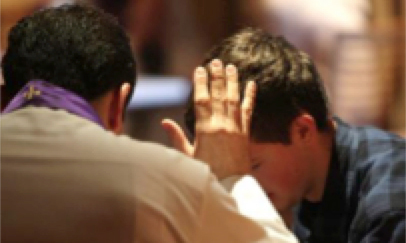What's in a name? The sacrament of reconciliation
Opinion
Analysing the sacrament of reconciliation and how it enables us to come face to face with God's loving mercy and forgiveness.

I remember clearly going to confession as a child in that tiny room in the church, with Fr O’Rourke on the other side of the grille. Later, I came to know this sacrament as penance (still its official title). Then, after the reforms of the Second Vatican Council it became widely known as the sacrament of reconciliation. So, what’s in a name? Is it confession or penance or reconciliation? In fact, all three names convey how this sacrament enables us to come face to face with God’s loving mercy and forgiveness and assures us that our sins have been forgiven.
Advertisement
We are all capable of doing good and indeed Vatican II strongly affirmed that we are all called to holiness, yet we also acknowledge the reality that we sin. As St Paul said, “I do not understand what I do. For I do not do what I want, but what I hate.” (Rom 7:15) Simply because we are human we struggle to achieve the holiness that should mark the life of every follower of Christ. But the strength of the Holy Spirit given in baptism and confirmation is there to support us in our struggle, and the Sacrament of penance is there to assure us of God’s forgiveness and mercy on those occasions when we do fail badly.
The ‘confession’ part of the sacrament is often the most daunting. “How can I bear the shame of telling my sins to a priest?” The truth is that the priest is there in place of Jesus and not there to condemn. He is there to guide us gently through the process and to help us be liberated from the burden of guilt that can weigh us down. Having the courage to openly name our sins brings the wonderful reward of forgiveness and peace.
Advertisement
The ‘penance’ that we are assigned is simply a token of our sorrow for the harm that has been caused by our sinning. It reminds us that we cannot do everything on our own but need the help of God to answer the call to holiness.
The ‘reconciliation’ that occurs through this sacrament is between ourselves and God but also between ourselves and the other members of the body of Christ, the Church. We all know that when one part of our body is not working properly then the whole body suffers. So it is that the sin of the individual affects the health of the whole body of Christ.
The sacrament of penance brings God’s mercy, forgiveness and peace, by restoring us to honesty and integrity (there is no need to rationalise our actions or keep part of our life secret), by relieving us of unproductive guilt, and by providing guidance and strength to meet future challenges. What more comforting words could we hear than, “…may God give you pardon and peace, and I absolve you from your sins in the name of the Father and of the Son and of the Holy Spirit.”
God is waiting to give us the wonderful gift of forgiveness; let us go and receive it!
Jenny O’Brien is liturgy educator at the Office for Worship.







Comments
Show comments Hide comments